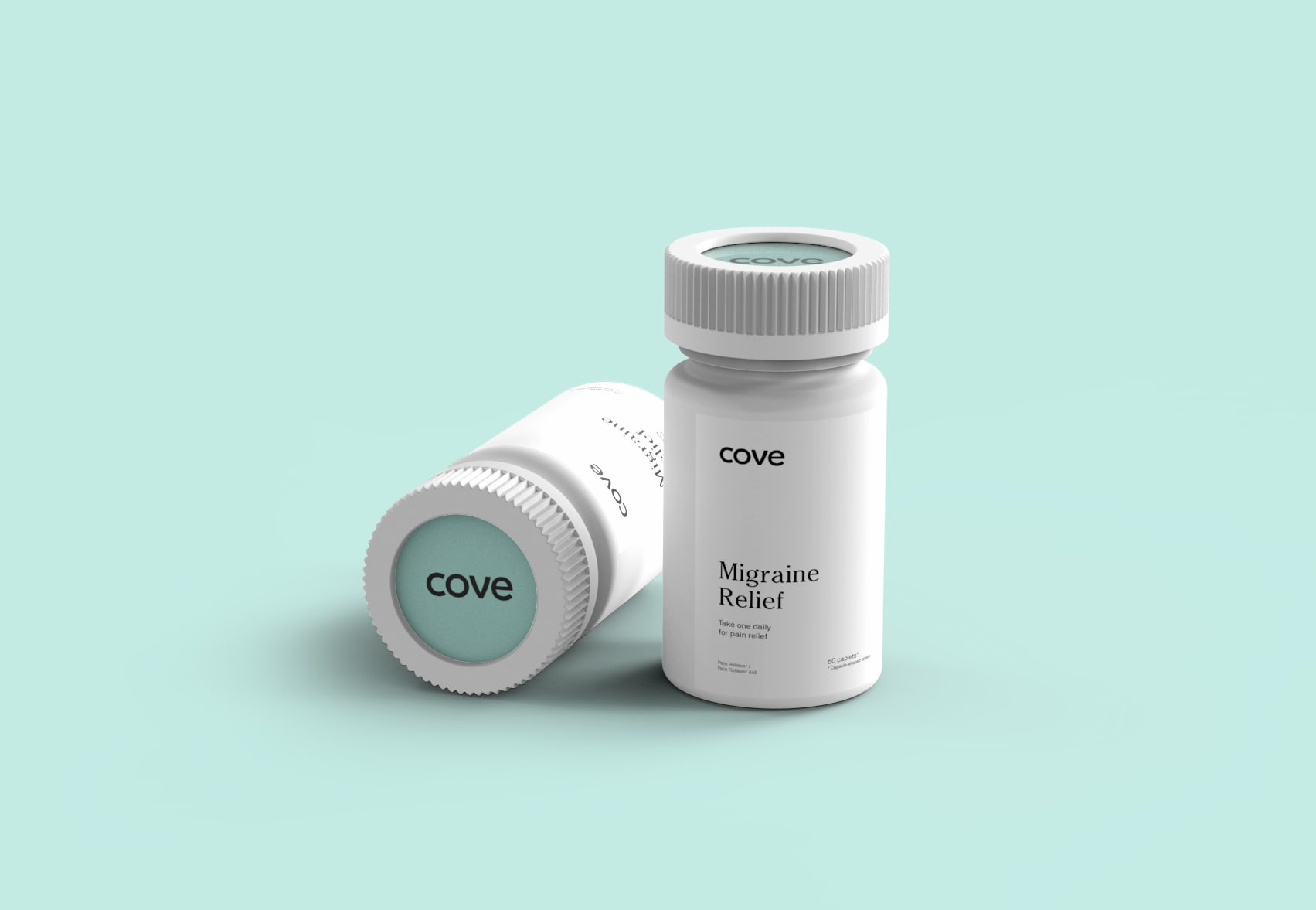We all know that old cliché: “Not tonight honey...I have a headache.” But the impact of headaches on sufferers’ sex lives is no joke. If you suffer from migraine or love someone who does, you know that taking headache pain seriously is essential for building a healthy relationship.
That’s why we’re breaking down the complicated relationship between sex, relationships, and migraine—and serving up some useful advice for talking to that special someone about your attacks.
Can sex trigger headaches?
We hate to be the bearer of bad news, but the answer is yes. In fact, sex can trigger two different kinds of headaches: primary sex headaches and (you guessed it) migraine headaches. Distinguishing between the two is important for determining the proper treatment, so allow us to explain.
Type 1: Primary sex headaches
Primary sex headaches are exactly what they sound like—headaches caused by sexual activity, especially orgasm. For some people, this feels like a dull ache that builds over the course of sex. More commonly, they’ll get a sudden and severe headache right before or during orgasm. (The two types used to be called “pre-orgasmic headache” and “orgasmic headache.”) The pain can linger for hours after sex, but usually not as intensely.
These headaches are called “primary” because they are not caused by any other condition. So why do they happen? Just like with migraine, doctors aren’t quite sure, but they think it may be related to increased muscle tension or blood vessels swelling the brain during orgasm.
Type 2: Migraine headaches triggered by sex
Like any strenuous physical activity, including exercise, sex can trigger a migraine attack by increasing blood flow to the brain. According to the American Migraine Foundation, migraine sufferers rarely report sex as a trigger, but they're more likely to experience sex headaches than non-sufferers, possibly because their brains are predisposed to headache pain.
How can you tell the difference between the two?
So, how can you tell the difference between a sex headache and a migraine headache triggered by sex? Just like distinguishing between migraine and regular headaches, the key is paying close attention to your symptoms. Primary sex headaches typically include an explosive pain that suddenly attacks both sides of the head, while most migraine headaches build over time, tend to focus on one side of the head, and come with additional symptoms like nausea or light/sound sensitivity.
It’s also important to note that primary sex headaches are much rarer than migraine, affecting only 1-1.6% of the population. And for what it’s worth, most migraine sufferers are women, while most people who get primary sex headaches are men.
When should you talk to a doctor about sex headaches?
Before we dig into the ways migraine headaches can affect relationships, we should mention that headaches after sex that appear suddenly can be a sign of a serious medical issue, such as an aneurysm or brain hemorrhage. People with no prior history of headaches who suddenly experience an explosive headache during or after sex should speak with a doctor to make sure nothing serious is going on.
Does sex help relieve migraine headaches?
It can! Even though sex can trigger migraine attacks for some people, studies show that having sex during an attack can lessen the pain. (In one study, 60% of participants with migraine reported an improvement in their pain thanks to sexual activity.)
How does sex help? Doctors have a few theories. One is that having sex simply distracts you from the pain, and another is that endorphins (chemicals in your brain that make you feel happy) released during sex naturally counteract the headache.
Can’t imagine letting your partner touch you while you’re in the throes of a migraine attack? All of these benefits come from orgasm, no matter how you get there, so don’t be afraid to go the DIY route. And unlike with medications, the relief kicks in immediately.
How does migraine affect your sex drive?
If you experience migraine headaches, you may feel like the last thing on your mind during an attack is sex. And for those who have hours or days of prodromal symptoms leading up to the headache, the anxiety of knowing it's coming may make you too tense to get in the mood.
Certain migraine treatments, particularly antidepressants, can also negatively impact libido, but, like all side effects, these issues don’t affect everyone who takes preventive medications.
Despite all that (and that old cliché), studies show that, between attacks, migraine sufferers actually have a higher sex drive than people who suffer from other types of headaches. A 2006 study published in the scientific journal Headache found that migraineurs reported 20% higher levels of sexual desire than sufferers of tension headaches.
Scientists suspect that migraineurs’ elevated sex drive may result from a need to replenish their naturally low levels of serotonin through sex.
How does migraine affect relationships?
If you’ve ever struggled to get a partner to understand how serious your migraine attacks really are, it will be no surprise to you that migraine can go hand in hand with relationship problems.
According to one study of over 1,000 migraineurs, 30% of participants who suffered up to three attacks each month reported that the attacks had damaged their relationships, while 40% of people with 4-15 monthly migraine attacks said the same. 8% of the chronic sufferers even said their migraine had led to a break-up. So the more frequent your attacks are, the more likely they are to take a toll on your romantic relationships (not to mention all the other aspects of your life).
On the bright side, more than half of the participants in that study said they were satisfied with their relationships despite the impact of migraine, and those with more frequent headaches were no less likely than the other participants to say they were happy with their partner.
How can I prevent migraine from hurting my relationship?
As any good relationship therapist might tell you, communication is key! Be honest with your partner about your migraine, even if you’re afraid that they won’t understand that it’s more than just a headache. They may never really get it, but they’ll understand that you’re in pain and do what they can to help you.
And even though it may not seem this way when you’re in the middle of a painful attack, migraine attacks don’t last forever. Make the most of your headache-free days with your partner and you may not feel as guilty about having to lock them out of your room while you wait out a headache.
Preventive medications like beta blockers and anticonvulsants can help reduce your migraine days and maximize the time you get to spend with the people you love. To learn more about preventive treatments for migraine, talk to a Cove doctor today.
The information provided in this article is not a substitute for professional medical advice, diagnosis, or treatment. You should not rely upon the content provided in this article for specific medical advice. If you have any questions or concerns, please talk to your doctor.
Photo by Pablo Heimplatz on Unsplash


